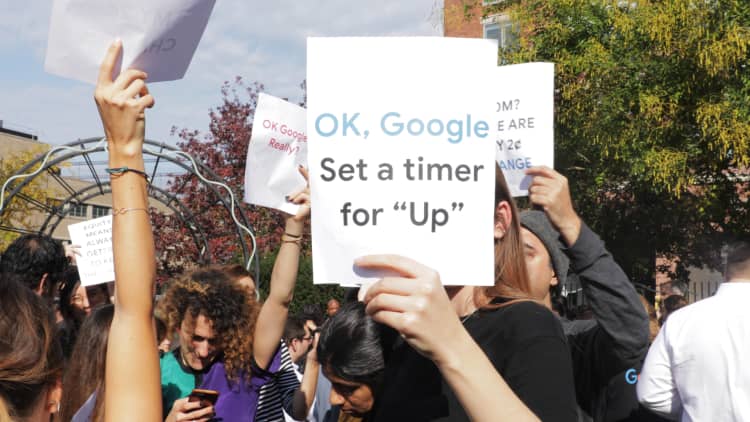In the U.S., eight in 10 of the largest corporations block your ability to sue them in federal court. That means if a a company shares your personal information without your approval, or a business fraudulently charges you over and over, you can't take them to court.
Instead, major companies across the U.S. have put legal clauses in the fine print of their customer agreements that force consumers to use a private dispute resolution method called arbitration, or, in some cases, file a suit in small claims court.
Arbitration doesn't just affect you when you're buying things or using a service. The Economic Policy Institute found that 60 million American workers are barred from suing their employer, including when they are fighting against serious claims such as discrimination, civil rights violations and sexual harassment.
But that may soon change. The House of Representatives on Friday passed a bipartisan bill, the Forced Arbitration Injustice Repeal Act, that would end forced arbitration.
The FAIR Act — which faces a steep battle to be passed in the Senate and signed by President Donald Trump to become law — would eliminate companies' ability to use forced arbitration clauses in any employment, consumer and civil rights cases and allow Americans to fight their lawsuits in federal court. If consumers and employees did want to use arbitration, they still could, but it would be a voluntary process, as opposed to their only option.
"Forced arbitration doesn't give consumers or workers the full protection of the law," Rep. Pramila Jayapal, D-Wash., who serves on the House Judiciary Committee, said earlier this month. "It is a perpetually rigged deck against the most vulnerable party in the dispute," she said, adding that "we are all at a disadvantage in this system every single day."
Proponents of the FAIR Act say lawsuits are about more than just getting reimbursed for past harms. They can shine a public light on bigger issues. In fact, consumer advocates believe that Wells Fargo's employee practice of opening unauthorized bank accounts for millions of customers would have been exposed (and potentially ended) much earlier if the company had not enforced mandatory arbitration.
Yet companies typically contend that they use arbitration because it saves everyone involved time and money. For example, J.P. Morgan Chase rolled out new rules to almost all of its credit card customers, saying that "when an arbitration process is designed appropriately, there are fewer barriers to bringing a claim in arbitration than bringing a claim in court, and it can be more convenient for claimants to obtain a hearing and to achieve a resolution of their claims."
Don't miss: Consumers can't sue some of the biggest companies in the US—here's what that means for you
Like this story? Subscribe to CNBC Make It on YouTube!



